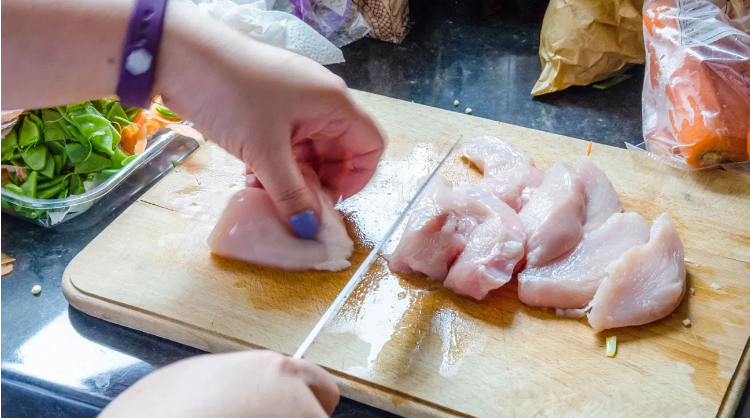Cooking can carry its risks, especially if you enjoy the dramatic flair of flambéing! While the hazards are generally minimal when whipping up a meal in your kitchen, dealing with chicken or any poultry demands caution due to the potential for foodborne illnesses.
Why Caution is Key
Salmonella, a common foodborne bacterium, is accountable for around 1.2 million cases of illness and 450 fatalities each year.
Primarily present in raw poultry, Salmonella poses little threat when poultry is adequately cooked. However, undercooked or mishandled raw poultry can spell trouble.
All poultry in the UK undergoes inspection for signs of disease, but this doesn’t guarantee freedom from bacteria. In fact, it’s not uncommon for raw poultry to harbour various bacteria strains.
Correct Temperature and Timing
While cooking guidelines can offer estimates on how long to cook your chicken, due to variations in oven heat and chicken sizes, it’s crucial to double-check the meat’s internal temperature.
To eliminate any potential pathogens, the internal temperature of the poultry must reach 165°F (74˚C).
Ensure you achieve this temperature by inserting a meat thermometer into the thickest part of the breast. Close enough isn’t sufficient; return it to the oven if it hasn’t reached the threshold.
Misconceptions and Best Practices
Don’t rely solely on visual cues to determine doneness. Pink meat doesn’t always indicate undercooking, and conversely, white meat doesn’t guarantee bacteria elimination.
Exercise caution against cross-contamination when checking the meat’s appearance. Contact with surfaces, utensils, or hands can transfer bacteria, potentially ending up in your meal.
Thoroughly disinfect surfaces that come into contact with raw poultry and use disposable paper towels to avoid spreading contaminants.
Chicken Breast Recipes
Now that you’re equipped with safe handling techniques, let’s explore culinary possibilities!
Chicken breasts are incredibly versatile and can be used in salads, sandwiches, or grilled dishes. For a healthy twist, try oven-fried chicken breast or herb-roasted chicken breasts.
Don’t let cooking chicken intimidate you. Armed with proper handling knowledge, chicken breast becomes a delicious and safe lean protein option.
How Long Does Chicken Last in the Fridge?
According to the UK Food Standards Agency (FSA), raw chicken can be refrigerated for approximately 1–2 days, similar to raw turkey and other poultry.
Cooked chicken can last in the refrigerator for about 3–4 days.
Refrigeration slows bacterial growth, as they tend to thrive less in temperatures below 40°F (4°C).
Store raw chicken in leak-proof containers to prevent cross-contamination, and cooked chicken in airtight containers.
For longer storage, freezing is recommended.
Raw chicken pieces can be frozen for up to 9 months, while a whole chicken can last for up to 1 year. Cooked chicken can be stored in the freezer for 2–6 months.
Risks of Consuming Spoiled Chicken
Eating spoiled chicken can lead to foodborne illness, commonly known as food poisoning.
Chicken poses a high risk of food poisoning due to potential contamination with bacteria like Campylobacter and Salmonella.
While thorough cooking usually eliminates these bacteria, avoid consuming spoiled chicken. Reheating won’t eliminate toxins produced by bacteria, which can still cause food poisoning.
In Conclusion
Raw chicken lasts 1–2 days in the fridge, cooked chicken about 3–4 days.
Check the “best if used by” date and inspect for spoilage signs such as odour, texture changes, and discolouration to avoid consuming spoiled chicken, even if cooked thoroughly.
- How Long Should You Bake a Boneless Chicken Breast? - April 19, 2024
- How HØJ Became the New High - June 10, 2023
- “Sahyog-Care for You”: Empowering Communities and Creating Lasting Change - June 10, 2023






